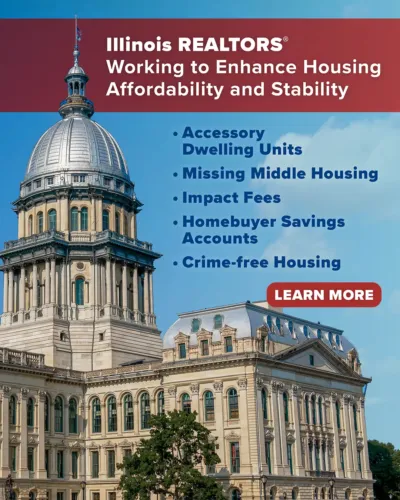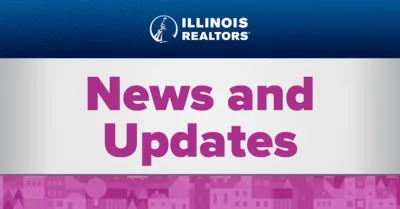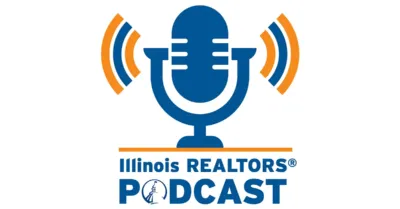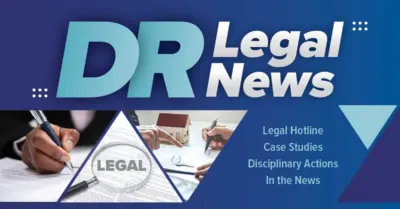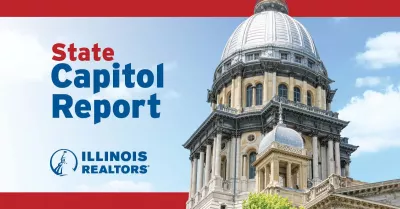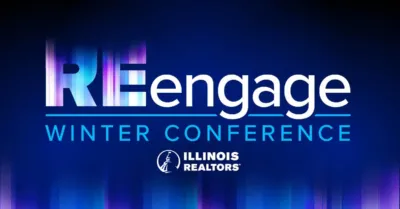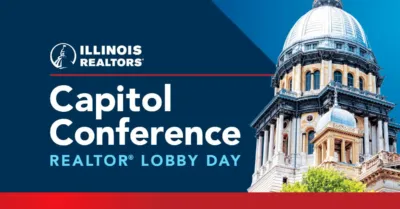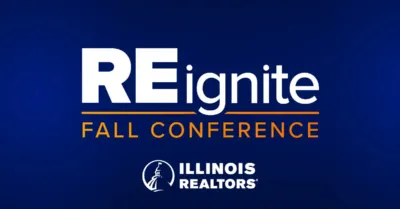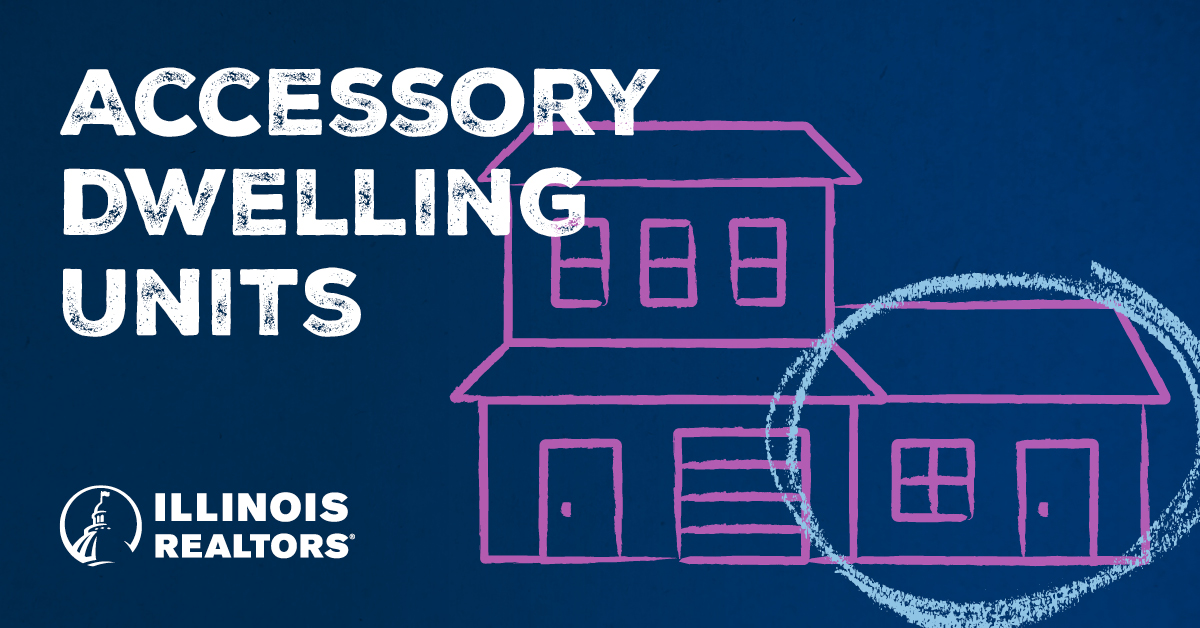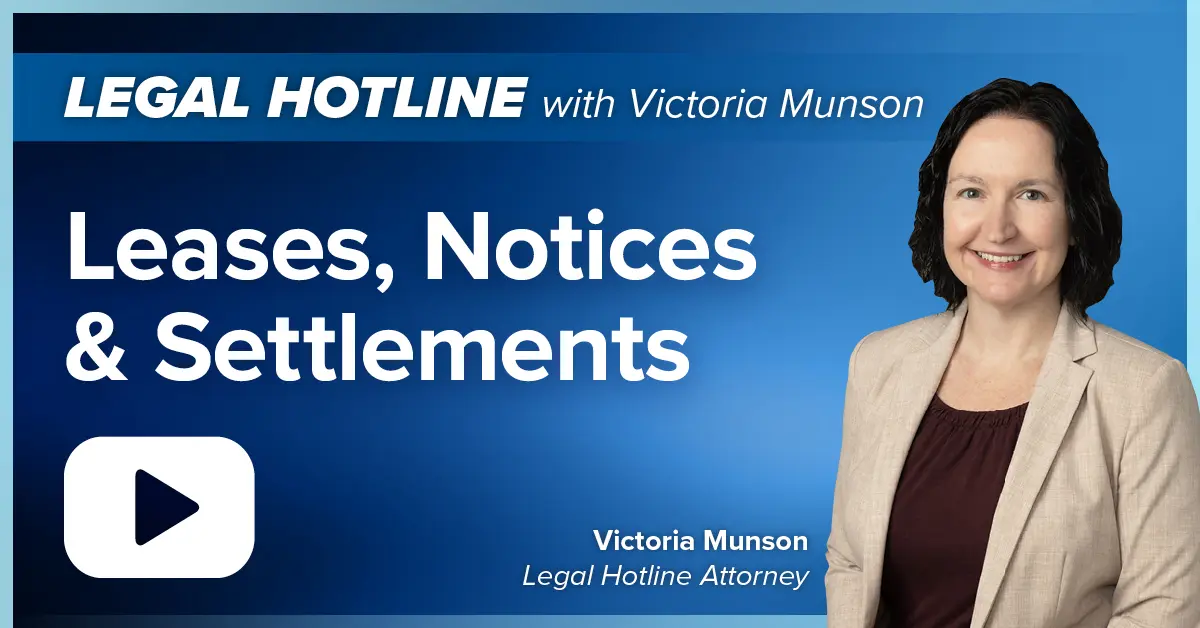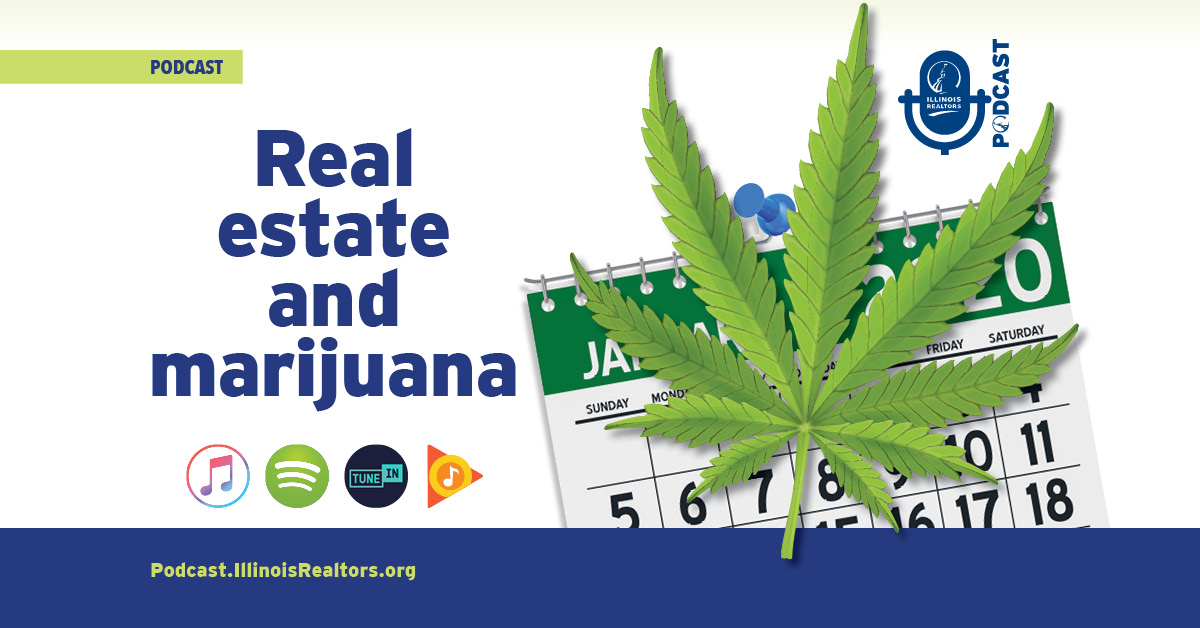
Recreational marijuana becomes legal Jan. 1, 2020, and the law can have impact on Illinois REALTORS® conduct their businesses.
Association Chief Legal Counsel Betsy Urbance discusses with the Illinois REALTORS® Podcast some of the implications practitioners need to be aware of as the deadline for legalized cannabis nears. For example, do REALTORS® need to ask a property owner disclose marijuana growing on the premises? Can a property owners ban all marijuana use on a property he or she owns?
The podcast is a companion piece to a article in the October edition of Illinois REALTOR® Magazine which outlines the issue and talks with practitioners in other states who have experience with similar legal changes.
Podcast link and full transcript below:
Transcript:
REALTORS® and Legalized marijuana, Podcast with Betsy Urbance, chief legal counsel, Illinois REALTORS®, December, 2019.
Jon Broadbooks: Hello and welcome to the Illinois Realtors podcast. I’m Jon Broadbooks and as we enter the final weeks of 2019, I thought it might be worthwhile to discuss one big legal change that our members will face January 1st, 2020. And of course, I’m talking about weed, legalized marijuana. Usage of marijuana for medical purposes has been allowed since 2013 but in the 2019 general assembly, lawmakers passed a bill later signed into law by governor J.B. Pritzker, which would allow legalized marijuana sales for both medical and recreational use. This policy change has implications for real estate practitioners, which range from what must be disclosed or not disclosed to the intricacies of locating dispensary’s or grow operations. Here to talk with us about what this all means for real estate practitioners is Betsy Urbance, chief legal counsel for Illinois Realtors and someone who has spent more than two decades working with the States licensed law and translating it for practitioners. Betsy, welcome to the podcast.
Betsy Urbance: Thanks Jon. Happy to be here.
Jon Broadbooks: Legalized marijuana has impacts for both residential and commercial practitioners, and so let’s start with the commercial side of the business. Betsy, if you’re a realtor approached by someone wanting to locate a cannabis related business, what are the basics that you need to know?
Betsy Urbance: Well, as with any commercial transaction, a basic requirement for information would be how much space do you need? What sort of building do you need? What sort of equipment do you need? Secondly, what are the zoning requirements that you have with regard to this particular industry? Also, you should be aware that some municipalities and local governments may or may not allow cannabis grows. So you’ll need to know that information as well. Is the local going to be receptive to the commercial cannabis grow operation? How much space do you need? Where is it located in relation to schools, day cares? I don’t know if hospitals are on that list, but there are certain restrictions as to where these dispensaries and these grow operations can be located. Dispensary is another question. If you’re looking for… There’s the grow operation and there’s the dispensary operation. Right now in Illinois, dispensaries will be located in existing medical dispensary’s and they get a certain number of licenses and then later they will be opened up to the recreational dispensaries. So that would also be a building requirement related to the cannabis industry.
Jon Broadbooks: I am guessing that negotiating a lease for a dispensary or some sort of a grow operation becomes much more complex for a commercial practitioner. I mean I would think for example, utility costs could be a potential issue because sometimes utility costs are lumped into a lease.
Betsy Urbance: I would think you’re right. It’s a little bit conjecture because at this point I know what the law says generally. I’m not an expert on marijuana production or facilities needed. I just know from anecdotal stories that there is an air circulation requirement, so the air condition, the HVAC system has to be really up to speed. You have to have a water delivery system. Humidity can be an issue. And then just financially, there are questions with regard to are you buying or leasing? You have overall the fact that the federal law still prohibits marijuana on the recreational side of things as well as the medical. So you have that to deal with. So sometimes there are some banking issues. I understand from other states getting into the recreational and the medical business that many of these deals are cash based.
Jon Broadbooks: Well and that kind of brought me to my next question. I mean as you pointed out, it is illegal to sell marijuana, at least from the federal standpoint. This must make banks very skittish about having anything to do with these funds. And I guess if you’re a realtor and you’re trying to deal with lease, people paying the lease, I mean what, what do you do with the money? What kind of exposure do you have in that situation?
Betsy Urbance: Exposure questions are always hard to answer without a specific set of facts, Jon. [crosstalk 00:04:24]
Jon Broadbooks: It depends on the facts.
Betsy Urbance: As you well know.
Jon Broadbooks: Yes.
Betsy Urbance: It always depends on the facts. The information that I read does indicate that these are very often cash based and sometimes the commercial client in the marijuana industry is actually looking to buy as opposed to lease, just to sort of get rid of that issue as the case may be. I do think there is some proposed legislation at the federal level. I couldn’t give you chapter and verse and I don’t believe there’s anything in place at this moment, but I do believe there is a move afoot at the federal level to allow the banks to deal on the state level in this industry. Couldn’t give you chapter and verse. It’s probably not much more than a rumor, but I think there is some activity.
Jon Broadbooks: Well it sounds like if you have a specific fact pattern as you would point out that you probably do need to talk to an attorney who would be more [crosstalk 00:05:29]
Betsy Urbance: Absolutely.
Jon Broadbooks: More aware of your specific circumstance as to how to handle it, but it is an issue. I know Illinois Realtors magazine did a story about the marijuana industry and we talked to people in Colorado.
Betsy Urbance: Right.
Jon Broadbooks: And that definitely is an issue that has a bearing on the industry there.
Betsy Urbance: But also the attorneys are, I have seen just through my own resources as far as continuing legal education and just knowing some attorneys that are advising their clients. They are getting education on how to advise their clients in situations where something is legal at the state or local level and not at the federal level. So definitely I would suggest legal advice for your clients.
Jon Broadbooks: And I guess it’s important to point out here that this is all happening sort of in real time. I mean, yes there are rules and the state has passed a law, but the full implications and policy changes probably are still to develop a little bit. So let’s roll through some common questions that have come up. Many of our members are engaged in property management, for example. They may own investment properties. Can they prohibit the use of any cannabis across the board?
Betsy Urbance: The general answer to that question is no. They couldn’t prohibit the legal use either medically or recreationally. If a person’s over 21 on the recreational side of things. However, just as smoking is legal, they can still elect, the owner could elect to make the property smoke-free, in which case a legal medical or legal recreational user would be prohibited from smoking cannabis products in the unit or in the home. They’d have to figure out another way. Gummies, dude.
Jon Broadbooks: I was going to say, gummies are okay.
Betsy Urbance: Right. Those are [crosstalk 00:07:26]
Jon Broadbooks: Ingestibles I guess is what they’re calling it. The brownies.
Betsy Urbance: Edibles. Right.
Jon Broadbooks: So a property manager, can they restrict the growing of marijuana on the premises? And there are some state laws which limits specifically how much you can grow. It’s actually pretty stringent, I believe.
Betsy Urbance: Well at the state level, under this current statute that becomes effective Jan one… It may have become effective actually sooner, but all of this regulation is in play. Starting Jan one, 2020. You cannot grow in a home and unless you’re a medical card holder and you’re limited to five plants in a locked room and they can’t be more than five inches. I
Jon Broadbooks: Let’s say you’re a residential practitioner, Betsy. Does a homeowner have to disclose if they are growing marijuana in a home you are listing?
Betsy Urbance: I wouldn’t advise a property owner to disclose that they’re growing marijuana unless there’s some really good reason for it. Like if we look at Colorado for example, where they have found that having a grow operation in a home where it’s legal is a selling point. In that case, if let’s say you have a medical seller user who has his five plant operation in his house, that might be a selling point for another person who’s a medical user and would be authorized. In that case, you might disclose it. The fact of the grow is not a disclosable item. That is something that is not really in and of itself a defective condition in the real estate. Now, if you’re a real estate broker and you walk into the home and maybe do in part or in whole to the grow operation, there is a moisture issue and there’s some funky substance growing up the walls of the room, then you’re going to have a disclosure issue because generally it’s a physical problem in the property.
Jon Broadbooks: So really it comes down to is there a material defect just like there would be with any other disclosure [crosstalk 00:09:55]
Betsy Urbance: Right. In the physical condition of the property. That’s the question. Is it a hidden material, physical defect in the property itself?
Jon Broadbooks: So as you pointed out, somebody who has a medical marijuana card is limited to growing just a handful of marijuana plants at a time in a home. So let’s say you’re a real estate practitioner. Somebody’s called you in to list a house. You find that somebody has 12 plants or 20 plants. What’s your legal duty here? Should you call the cops? And if you don’t, are you in legal peril?
Betsy Urbance: My general answer to that would be no, you’re not. You’re not the marijuana police. You’re not. It’s not your business really whether the person there is a medical card holder is a recreational user is authorized to grow.
Jon Broadbooks: I would guess. Now, let’s take it back to if you’re say a managing broker. Let’s say you, you run a real estate office. And I would guess most offices, certainly Illinois Realtors does have policies about people turning up to work under the influence. Well, what about marijuana? Do you need to change the language in your handbooks to reflect the change in the law?
Betsy Urbance: I would say the managing broker with the advice of their attorney should review their policies. Whether or not they’ll have to change any language probably depends on the existing language of their policy. It would be similar… I keep likening it to smoking and alcohol use. Don’t be impaired on the job, especially in situations where many times you’re a managing broker and you’re probably dealing with both employees in your office, if your office is of any size. And independent contractors or at least you’re treating your licensees as independent contractors. So you have to be relatively careful how you treat them. Your existing policy may say, don’t show up to work impaired. That’s obviously not the legal language, but that’s the gist of it. And that would be the policy that should hold true in this case.
Jon Broadbooks: But if you had a policy that, for example just specifically talked about alcohol, you would probably want to review that and be more [crosstalk 00:12:38]
Betsy Urbance: Right. You would review that. [crosstalk 00:12:39]
Jon Broadbooks: Specific or use the language impaired because it would cover no matter what substance you happen to be in.
Betsy Urbance: Right. And we’re just not going to suggest language in the form of a podcast. So we’d say get to your attorney, get the language that gives you the general rule. When you’re on the job, don’t be impaired.
Jon Broadbooks: Consult an attorney, says the attorney.
Betsy Urbance: Right.
Jon Broadbooks: Let’s say you have agents who are working for you. Can you just tell them, they can’t use marijuana and remain with a firm? Do you have that ability?
Betsy Urbance: You have the ability to say it, legally you shouldn’t say it.
Jon Broadbooks: And why is that?
Betsy Urbance: You shouldn’t say it because you can’t really say what a person can or can’t do on their own time. It would be similar to me telling you, Jon, don’t go home and have a glass of wine tonight.
Jon Broadbooks: Betsy, thanks as always for the insight, and I know you’ll be monitoring this as things kick off for legalized marijuana sales, recreational marijuana sales on January 1st. You can learn more about the impact of legalized marijuana and what impact it may have on the real estate industry by checking out the October edition of Illinois Realtor magazine. We jokingly refer to it as the weed issue, but it really does have a lot of practical information from Betsy and from others in states who have made this transition as well.


